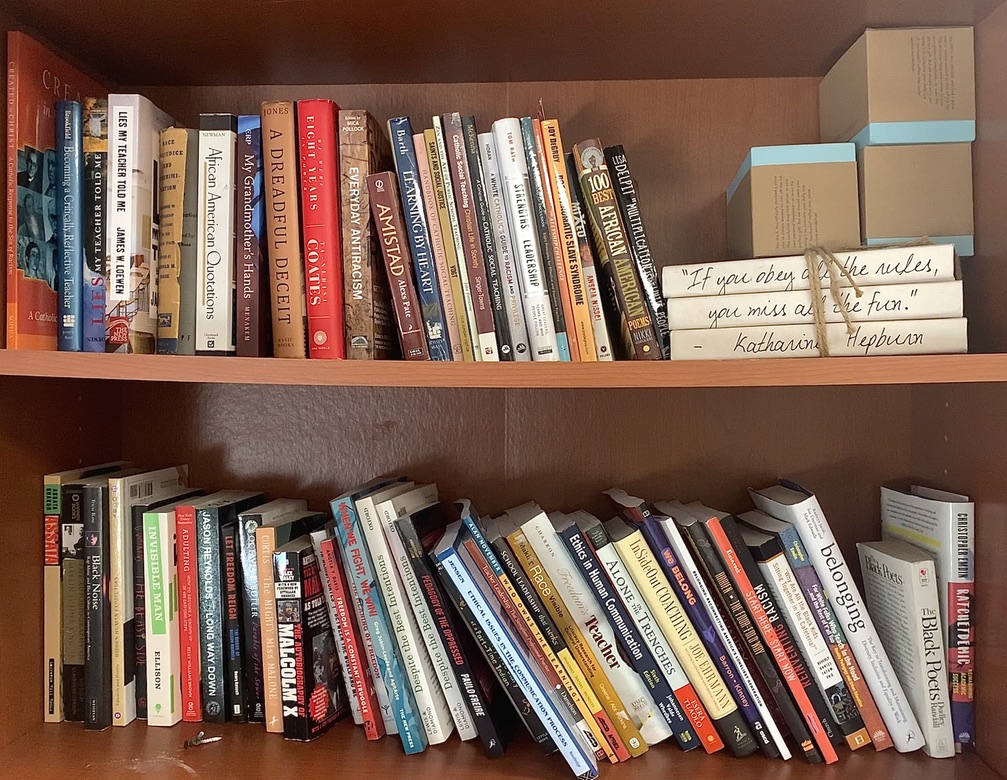As students plan for their next academic year at Benilde-St. Margaret’s, many notice the new class options available. Included in these options is the AP African American studies class.
The College Board announced last year that it would be conducting a nationwide pilot program for AP African American studies in about 60 schools. BSM attempted to have the course run, but whether it be due to scheduling conflicts or lack of desire to take an additional social studies class, there were only around 10 students enrolled–just below the threshold of the minimum requirement of 20 students. The class was ultimately cut for the 2023–2024 academic year due to lack of enrollment.
The course has now run for a year, so there no longer is a minimum requirement for the number of students and BSM is able to hold the class. The course will be focused on both historical and literary aspects, allowing BSM to make it a dual-credit course for seniors. This means that seniors enrolled in AP African American studies are still required to take one semester of an additional government and English class. For juniors, it will count as an elective credit.
Dennis Draughn, Director of Equity, Inclusion & Belonging, will be teaching the social studies portion of the class, and English teacher, Callianne Olson, will teach the literature side. “Ultimately I think the goal would be for them to gain as much knowledge as they can on the black experience in America and in the world. I would love for them to pass the AP course exam, but I think more importantly, [the] exam isn’t as important as the knowledge they need to internalize about the black experience,” Draughn said.
AP African American studies uses the two components (history and literature) in order to provide depth so students are able to internalize and understand the course. “We would envision that there’s a book or reading or poetry that complements what we’re talking about [in the social studies content]. So for example, if we’re talking about redlining, they could read Raisin in the Sun,” Draughn said.
Dolapo-Antoneitte Aluko, a junior enrolled in the course for next year, is enthusiastic about the topic and hopes for more people to sign up to keep the class afloat. “I want to learn more about the origins of the African diaspora, how slavery still impacts black people today, and the achievements made by African Americans,” Aluko said in a previous interview.
US History and the history of African Americans are thoroughly interwoven. “I think it’s important for students to see and understand that the history of… the black person in America is American experience,” Draughn said.
Draughn maintains that the curriculum can be valuable to all Benilde-St. Margaret’s students. “I think it’s important to ensure that we all have some type of understanding of American history… because our society was built on the backs of enslaved Africans… and what was the struggle for our society. If people knew better, they would do better. I think if we close ourselves off from that specific . . . part of history and culture, then we limit our capacity to grow our own minds,” Draughn said in a previous interview.
I think it’s important to ensure that we all have some type of understanding of American history… because our society was built on the backs of enslaved Africans… and what was the struggle for our society. If people knew better, they would do better. I think if we close ourselves off from that specific . . . part of history and culture, then we limit our capacity to grow our own minds.”
— Dennis Draughn
Draugn also talks about the internal effect that the class can have on students, specifically students of color at BSM, in order to better understand their own identities. When he took African American studies in college, it helped him learn about himself. “My degree at the University of Minnesota, it’s in African American Studies. It really helped me as far as myself, my identity, and understanding the African American experience in the African diaspora. And I think all students would benefit from understanding the depth of that experience as it is American society itself as well,” Draughn said in a previous interview.
Draughn emphasizes the importance of studying historical mistakes in order to improve the lot of present-day generations, especially looking through multiple perspectives. “If there’s only one narrative spoken… then the [other] narratives are lost. And it’s only isolated to whoever tends to be the victor versus those who are struggling and are marginalized,” Draughn said in a previous interview.
When the course first launched, it had been banned by the Florida Department of Education, which stated that it was because it violated Florida law and had little value for education. Inquiries for more information and clarity received no response from the department. Governor Ron DeSantis enacted legislation last year commonly known as the “Stop WOKE Act.” This act regulates how racism and other historical topics may be taught in schools and may forbid teachers from giving lessons that could instill guilt or responsibility in students for the past actions of other people of their race.
Aluko contends that educational institutions shouldn’t create excuses in order to not offer a course. “AP African American Studies should be treated the same way as other history-related AP courses. Leaving this out of history because it’s ‘too woke’ is just blatant racism,” Aluko said in a previous interview.
As the Director of Equity, Inclusion & Belonging, Draughn hopes this class acts as a jumpstart for more inclusive classes throughout the school. “We want to lead the way in terms of academia and opportunities for students… my thought is that this would be the first of many courses like that… So, at some point, they [might] have an AP Indigenous Studies, or AP Chicano Studies, or AP Women’s Studies,” Draughn said.











































